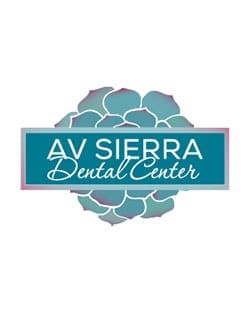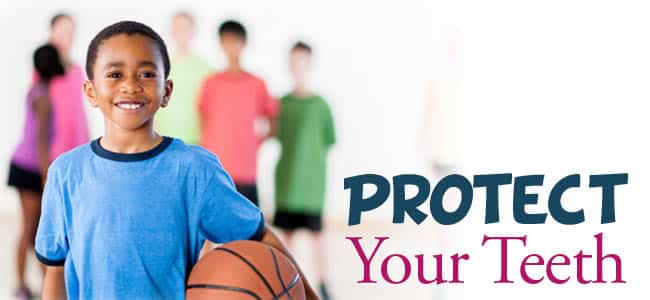Am I at Risk? The Question That’s on Everyone’s Lips

Speaking, eating, and smooching — these are all daily activities that draw attention to your lips. You most likely catch a glimpse of them every time you look in the mirror throughout the day, like when you brush your teeth during your morning routine and then again before going to bed. With their high visibility, you might guess that identifying lip cancer in its earliest stages would be common, but you might be surprised at how often early signs go unnoticed. Skin cancer is the most common type of cancer in the U.S., and according to the American Dental Association, 41,000 Americans will be diagnosed with oral and throat cancers this year. With 60% of the U.S. population visiting the dentist each year, where there mouths are closely examined and oral cancer screenings are done routinely, the dental community is the first line of defense for early detection. What Is the Difference Between Lip and Oral Cancer? Lip cancer is one kind of oral cancer. Simply put, cancer is the rapid and uncontrollable growth of invasive cells that damage surrounding tissue. When this occurs on or in the mouth, it is referred to as oral cancer. A notable difference between lip cancer and cancer that occurs inside the mouth and throat is the added risk factor of prolonged exposure to the sun. Lip cancer is often caused by the harmful effects of ultraviolet light, and the lower lip specifically has the greatest risk because it has more exposure to the sun. Risk Factors While sun exposure increases the likelihood of suffering from lip cancer, there are other factors that increase your risk for oral cancer, most of which are avoidable. Tobacco: Tobacco use of any kind increases your chances of getting oral cancer. Alcohol: Heavy alcohol use and abuse has been found to be a risk factor. Sun exposure: Individuals who have regular, prolonged exposure to the sun are more likely to be diagnosed with cancer of the lips. HPV: HPV is tied to the development of cervical cancer and is also a risk factor for oral and oropharyngeal cancers. Dentures: Though the connection is debated, some believe that poorly fit dentures that cause long-term irritation of the mouth lining may lead to cancer. It is important that patients who wear dentures have the fit checked regularly, along with a regular oral cancer screening, to minimize their risk. Signs of Oral Cancer Cancer of the mouth reveals itself as a growth or sore in the mouth or throat that doesn’t go away with time. Other symptoms include: Red or white patches on the lining of the mouth or tongue Swelling or thickening of areas inside the mouth Unexplained bleeding Sores on the face, neck, or mouth that do not heal Chronic sore throat Hoarseness A change in the way your dentures fit Though early detection is key to surviving oral cancer, prevention should always be the top priority. Oral and Lip Cancer Prevention There are some simple preventive steps you can take to minimize your risk of getting oral cancer: Good oral hygiene: Gum disease and tooth decay introduce infections into your mouth. This increases the risk of getting oral cancer. Make sure to brush, floss, and rinse daily. Make your routine visits: Your routine visits to the dentist are important. Our providers do more than make sure your teeth are clean; they are skilled at detecting the earliest signs of cancer, and they examine you thoroughly at every visit. Don’t engage in high-risk behaviors: Avoid smoking and smokeless tobacco, and minimize your consumption of alcohol. Use sun protection: If you are going to be spending time in the sun, use a broad-spectrum lip balm and sunscreen for your face and exposed skin. A broad-rim hat is an excellent choice for extra protection of face and lip areas. Performing a Self-Examination While performing a regular self-examination is a must, your own regular self-exam should not take the place of a routine dental visit. You may not be able to adequately see signs and symptoms that your dentist can easily identify. To perform your at-home self-exam, take the following steps: Stick out your tongue as far as you can and examine all sides and the underneath for lumps and discolored patches. Use your fingers to feel the inside surface of your cheeks and your lips for bumps or sore areas. Inspect the floor of your mouth for lumps as well as white and red patches that shouldn’t be there. Inspect the top of your mouth, and then depress your tongue and check your tonsils for abnormal enlargements, redness, symmetry, or bumps. Inspect your neck for enlarged lymph nodes or irregular bumps by palpating it with your fingers. Visiting your dentist for regular examination significantly improves the chances that abnormalities in your mouth will be caught and examined, greatly improving your chances of successful treatment should any abnormalities be cancerous. If you have questions or concerns about oral or lip cancer, call us today. We can provide you with the information you need and schedule a reassuring oral cancer screening for you as well.
Live Happier, Healthier & Longer: Why Your Smile Is Our Priority

Have you ever wondered why a Palmdale Dentist and other dental and oral health professionals spend so much time talking about your smile? Shouldn’t they focus more on your teeth? As dental health professionals, we know that your oral health affects a whole lot more than just your teeth. You may think your smile is just another way to communicate your happiness, but we know it does so much more than that. Smiling regularly can improve your mood and even your health. But when you hide your smile because you are embarrassed of crooked, chipped, or cracked teeth, you not only miss out on all of the benefits of smiling, but your self-esteem and confidence plummet as well. Benefits of Smiling Smiling — even when you may not feel like it — provides some surprising benefits. The following are just a few. Healthier Heart. According to a study published in Psychological Science, smiling helps you recover from stress and upset. Researchers found that participants who smiled during a stressful situation had a lower heart rate when recovering. Smiling is also credited for lowering blood pressure. The more you smile, the less likely you are to develop heart disease. Makes You Happy. The act of smiling releases endorphins. If you’ve ever gone running or worked out, then you’ve probably experienced the elation brought on by endorphins (also known as a runner’s high). When your body releases endorphins, your mood is naturally elevated. Reduces Stress. Those endorphins that make you feel happy also reduce stress. Between the endorphins and the lower heart rate, you could feel downright calm and cool, even when life’s intensity starts to heat up. Improves Relationships. Study after study has shown that people are more likely to trust someone with a genuine smile. Feeling connected to others is key to enjoying an enriched life. The more you smile, the more likely you are to form close, lasting relationships with others. Minimizes Pain. Those endorphins that smiling and laughing release have been shown to reduce pain significantly, in some cases up to 40%. Smiling Is Contagious. When you smile, approximately 50% of the time people smile back. There is an area in your brain that is responsible for your facial expressions, and as it turns out, the act of mimicking someone else’s smile is an unconscious automatic response. In fact, one Swedish study found it takes effort to frown when you see someone else smiling. So when you smile, you are spreading all of the benefits that come along with smiling to everyone who smiles back. Way to pay it forward! How We Can Help You Smile As your Palmdale Dentist and oral health provider, your overall health and happiness is our primary concern. We understand that if you aren’t smiling, then you aren’t receiving all of the benefits from our services that are available to you. If your teeth are keeping you from smiling, we have a suite of services that can fix a wide variety of conditions. Dental Implants. Implants offer a permanent solution for missing teeth. Not only do they look and feel like natural teeth, they also maintain your facial structure and integrity. Crowns. Porcelain crowns are the perfect restoration for cracked, chipped, or broken teeth. These natural-looking covers make imperfections in teeth entirely unnoticeable. Teeth Whitening. We offer both at-home and in-office treatment options using the most effective teeth-whitening systems available today. All treatment options are simple and noninvasive. Porcelain Veneers. These ultrathin, tooth-colored coverings are custom made and are fit to the front surface of your teeth, changing the appearance to the size and shape you desire. Veneers are perfect for fixing discolored and chipped teeth. Straightening. Straightening your smile no longer requires years of wearing metal wires on your teeth. There are a variety of “invisible” straightening options, such as Six Month Smiles® and Invisalign®, which allow you to have a straighter, more aesthetically pleasing smile in a matter of months. We are also here to help you with your routine oral hygiene so that your mouth feels as good as it looks. ChatGPT said: If you find yourself holding back from smiling and laughing because of how you feel about your teeth, call our Palmdale Dentist today to find out more about how we can help you feel better, live healthier, and smile more. 1. Kraft TL, Pressman SD. Grin and bear it: the influence of manipulated facial expression on the stress response. Psychological Science 2012;23:1372–1378. 2. Sonnby–Borgström, M. Automatic mimicry reactions as related to differences in emotional empathy. Scandinavian Journal of Psychology 2002;43:433–443.
What Does Mom’s Smile Say? A Mother’s Oral Health Could Be Affecting Her Kids

Motherhood is both wonderful and challenging. Most women agree that the only way to truly understand what being a mom is like is to become one. Once you have had children, they become your main focus, the purpose behind everything you do…and don’t do. It’s not uncommon for women to neglect themselves after having a baby. From missing the daily shower to going an extra month or two without a haircut, it’s natural for mothers to reroute all of their resources to their child or children, whether that be time, money, or energy. But could that self-neglect be having a negative affect that extends beyond Mom? Healthy Mom Equals Healthy Child According to a study published in the Journal of Dental Research (Jan. 19, 2011)1, moms’ oral health predicts their children’s oral health. This 27-year-long study found that if mothers had poor oral-hygiene practices while their children were young, the children had a higher rate of dental caries and poor overall oral health as adults. The study was conducted in New Zealand and consisted of 835 mothers who participated in a self-rated survey and 1,000 children who were examined at age 5 and then again at 32 (more than 900 examined at this time). The results were overwhelming. Almost half of the children with mothers who had poor dental health suffered from tooth decay and eventual tooth loss as adults. Bad News or Good? Initially, these results may sound like bad news, but they support the belief that when moms take time to care for themselves, they are also taking care of their children — a little relief from guilt for mom. Oral hygiene and dental care should not be seen as optional for mothers; they are crucial to Mom’s self-esteem and overall health, as well as for the children’s health and well-being. So what does putting the right amount of time and energy into dental care mean for Mom? Making sure to brush at least twice a day with fluoride toothpaste Flossing every day Minimizing the amount of sugary foods that are consumed Scheduling and attending regular checkups and cleanings Some common oral health conditions can be staved off with good oral-hygiene practices and regular checkups: Periodontal disease: The best way to avoid gum disease is by sticking to your at-home oral-hygiene routine. Flossing is particularly important. When plaque and tartar remain on teeth, a mild form of periodontal disease can occur, called gingivitis, in which the gums bleed and become red and swollen. Gingivitis is reversible, and it can be treated. However, when left untreated, the gum disease worsens, leading to an advanced form called periodontitis that can cause severe damage to the soft tissue that supports the teeth, resulting in infection and eventual tooth loss. Oral cancer: According to the American Dental Association, 41,000 Americans will be diagnosed with oral and throat cancers this year. Oral or mouth cancer reveals itself as a growth or sore in the mouth or throat that doesn’t go away with time. When you come into our office for your regular checkup, we provide a potentially life-saving oral cancer screening. Our oral cancer screenings consists of a verbal, visual, and physical examination, and they significantly increase your chance of a full recovery should cancer be found. We are your first line of defense for early detection. Having a healthy mouth and a beautiful smile are key to Mom feeling good about herself. Whether the special mother in your life is yours, someone you know, or you yourself, consider treating her to a teeth-whitening treatment. Sometimes having brighter teeth can give Mom that boost she needs. Feeling good about yourself is important, especially when life gets hard. As your family dentist, we understand that while dark and stained teeth can be healthy, they can also make you look tired, worn down, and older than you really are. Mom deserves better. Modern-day whitening treatments are fast, effective, and affordable, and they can whiten teeth up to 14 shades brighter. There is no quicker way to make Mom feel as amazing as she is. And remember, when Mom is happy, everyone is happier! Call today to find out more about how you can help Mom and the whole family stay healthier and happier. 1. https://jdr.sagepub.com/content/90/5/672
March Mania and Mouthguards: Protect Your Teeth

The madness of March is right around the corner, and 68 NCAA Division I basketball teams will go head to head over the course of three weeks to determine the national champion — and you know what that means: excitement, upsets, and kids and adults alike heading out to have fun on the courts themselves. Getting involved in any athletic activity is a great way to stay fit and healthy. Whether you are 8 or 58, sports offer an excellent form of active entertainment and exercise, but they also pose a threat to your oral health. What the Stats Say According to a new study*, playing sports comes with the heightened risk of dental and orofacial injuries: Each year more than 5 million teeth are knocked out of their sockets as a result of trauma. Basketball, football, hockey, martial arts, and boxing have the highest tooth-injury risk. Soft-tissue lacerations are the most common mouth and face injuries that occur during sports activities. Dental trauma can include tooth fracture, tooth loss, or injury resulting in a loose tooth. Protect Your Teeth with a Mouthguard The added risk to your dental health doesn’t mean you or your loved ones should shy away from playing sports. There are protective measures you can take to dramatically reduce the chances of damaging your teeth. The American Academy of Pediatric Dentistry (AAPD) recommends a mouthguard for all children and youth participating in any organized sports activities, including the following: Acrobatics Basketball Boxing Extreme Rugby Skateboarding Soccer This recommendation is suitable for adults as well. In fact, according to the ADA, sports mouthguards have been shown to reduce the risk of sports-related dental injuries. Statistics show* that the overall rate of an orofacial injury is 1.6 to 1.9 times higher when a mouthguard is not worn. And while basketball and baseball are two sports in which dental and facial trauma are relatively common, participants rarely wear protection. Fortunately, famous athletes like Stephen Curry and LeBron James are great examples of athletes who are rocking mouthguards and killing it on the court. So before you test your skills on the court, consider the example they have set. Having a dental provider fit you with a mouthguard that is resilient, comfortable, and durable could mean the difference between keeping or losing your teeth in a sports-related incident. To find out more about mouthguards, call your Palmdale dental office at 661.202.3542 to talk to a provider today! *Young, E., Macias, R., Stephens, L. Common Dental Injury Management in Athletes. Sports Health: A Multidisciplinary Approach. 2013;20(10):1-6.
Four DIY Valentine’s Day Gift Ideas

Nothing Is Sweeter Than a Healthy Smile Valentine’s Day is a holiday that can leave many parents feeling conflicted. Anything that gives you an excuse to spoil your kiddos with gifts and tell them how much you love them is a welcome retreat from the daily grind of handing out chores and pushing through homework. One daily parenting task that commonly elicits dread is convincing your children to brush their teeth. Every parent knows how important their children’s oral health is, and instilling solid early oral hygiene practices so that your kids can enjoy a lifetime of healthy smiles is even more important. Thus the downside of Valentine’s Day: all the sugary treats. Valentine’s Day is almost as notorious a threat to your kids’ teeth as Halloween. They inevitably come home from their classroom celebrations with paper bags full of chocolate and handfuls of candies with messages of love written on them. While these lovely confections please your kids, they are anxiety inducing when you catch yourself considering the damage being done to your children’s tiny pearly whites. That’s not to mention the difficulty you face when trying to figure out gifts to give them and Valentines they can give to their friends and classmates that won’t cause cavities. While you can’t control what they will be bringing home, you can skip on contributing to acts of love that promote decay. Below we have put together four DIY, tooth-healthy Valentine’s Day gift ideas that show love while also producing happy, healthy smiles. “You Make Me Smile” Toothbrush Valentine (Adapted from Time 2 Save Time 2 Give): This Valentine is simple to make and sends a sweet message while promoting good oral hygiene habits. You will need child-friendly toothbrushes, ribbon, colored paper, and a marker. Simply cut small hearts out of the paper and write a Valentine’s Day message like “You Make Me Smile” on each one. Attach ribbon to the back of the heart with tape and tie it to a toothbrush (still in package). You children’s classmates won’t be the only ones grinning! You can bet their parents will be feeling the love too. Paper Airplane Valentine Free Printable NoBiggie.net offers a free customizable, printable airplane Valentine that is perfect for the future pilots in your family. It’s quick and easy to make with corresponding numbers to help guide your way, and there’s even a video tutorial to walk you through creating the airplanes, making this a great last-minute go-to if you’ve been procrastinating. I’m Nuts About You Treat Bag Printable (From Design Dining Diapers): If your children just have to hand out yummy treats, bags of peanuts are perfect. This tooth-friendly treat is low in sugar and high in protein, and if you go to the Design Dining Diapers site and follow the instructions, you can download a printable tag that says “I’m Nuts About You” and use it to fasten shut your baggie full of peanuts, leaving your children with a fun, yummy Valentine to hand out to friends. Lunchtime Love: Show your children how much you love them with a little lunchtime love. You can give your children yummy hearts that aren’t made out of chocolate. Most kitchen-supply stores carry stainless-steel sandwich cutters in a variety of shapes and sizes. Use heart-shaped cutters to turn a turkey sandwich in a friendly reminder that you care. Smaller cutters can be used for meat and cheese slices or to turn slices of melon into a juicy, red dessert. Valentine’s Day doesn’t have to lead to decay; there are plenty of candy-less ways to celebrate love. If your children come home with bags full of sugary goodies, make sure they brush their teeth after every treat — and then call us to book an appointment for a cleaning. Happy Valentine’s Day from all of the staff at AV Sierra Dental Center!
